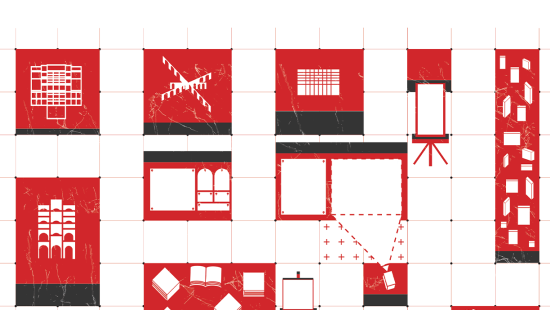Preston H. Thomas Memorial Symposium: Breaking Ground(s)

AAP (2021) BREAKING GROUND(S) AAP, a map of the College of Architecture, Art, and Planning in Ithaca, NY. image / Wendolin Gonzalez
Overview
Architecture at 150
The Department of Architecture at Cornell was first established in 1871 by university cofounder, A.D. White within the purview of the institution's founding mission to provide a place where "any person can find instruction in any study." Marking the occasion of the 150-year anniversary of the department this academic year, architecture chair and associate professor Caroline O'Donnell invites leading scholars and practitioners to AAP for a series of discussions that fall under the theme: Breaking Ground(s), toward the 22nd Century. Three sessions: "Groundwork," "Formwork," and "Schoolwork," foregrounded by a keynote lecture by Timothy Ingold, are meant to prompt timely questions and an array of perspectives on "the fundamental interconnectedness of the discipline with global ecologies and culture, alongside the consideration of future trajectories for the practice and pedagogy of architecture."
On the imperative to reflect and expound on the history and future of the department and discipline of architecture at this significant milestone, O'Donnell shares, "While the anniversary and traditions of the department call for celebration, we are also provided — as a department and a community of people with interrelated interests and backgrounds — with an opportunity to ask and answer important questions. The discipline of architecture is at a pivotal moment with regard to our critical engagement with our histories and foundations, the evolution of design practice and its concerns, and approaches to pedagogy that guide emerging generations of architects. Our community is ready to disrupt and advance our thinking about possible worlds that are more sustainable, equitable, smart, and meaningful in the future.”
150 years later, BREAKING GROUND(S) is a three-part symposium examining the fundamental interconnectedness of our discipline with global ecologies and cultures, alongside the consideration of future trajectories for the practice and pedagogy of architecture.
The Preston H. Thomas series is funded through a gift to Cornell's College of Architecture, Art, and Planning from Ruth and Leonard B. Thomas of Auburn, New York, in memory of their son, Preston. The symposium events are free and open to the public.
Should in-person events be permitted, all sessions will take place in the Abby and Howard Milstein Auditorium in Milstein Hall with a livestream attendance option available.
Organized by Caroline O'Donnell, Edgar A. Tafel Associate Professor of Architecture & Department Chair; coordinated by Wendolin Gonzalez (B.Arch. '21). Special thanks to architecture faculty Sean Anderson and Lily Chi for their support in shaping this semester's symposium.
To view the full programming of our anniversaries click here.
Schedule March 8
Breaking Ground(s): Keynote - Tuesday, March 08
5:15 p.m.
Welcome and Introduction by moderators Tao DuFour
5:30 p.m. KEYNOTE
Timothy Ingold
6:30 p.m. Closing Remarks
Respondents: Tao DuFour
Schedule March 10
Breaking Ground(s): GROUNDWORK - Thursday, March 10
5:15 p.m.
Words before All Else by Sachem Sam George
5:30 p.m.
Welcome and Introduction by moderators Jolene Rickard and Sean Anderson
5:45 p.m. GROUNDWORK
A dialogue with:
Amber Adams
Meredith Palmer
Sébastien Marot
7:30 p.m. Closing Remarks
Respondents: Jolene Rickard and Sean Anderson
Schedule March 17
Breaking Ground(s): FORMWORK - Thursday, March 17
5:15 p.m.
Welcome and Introduction by moderators Marta H. Wisniewska and Lily Chi
5:30 p.m. FORMWORK
A dialogue with:
Nina Cooke John (B.Arch. '95)
Arthur Huang (B.Arch. '02)
Lori Brown
7:30 p.m. Closing Remarks
Respondents: Marta H. Wisniewska and Lily Chi
Schedule March 22
Breaking Ground(s): SCHOOLWORK - Tuesday, March 22
5:15 p.m.
Welcome and Introduction by moderators Jenny Sabin and María González Pendás
5:30 p.m. SCHOOLWORK
A dialogue with:
Dean of USC Architecture Milton Curry (B.Arch. '88)
Harvard GSD Dean Sarah M. Whiting
AAP Dean J. Meejin Yoon (B.Arch. '95)
7:30 p.m. Closing Remarks
Respondents: Jenny Sabin and María González Pendás
Participants
Amber Adams
Amber Meadow Adams is Lower Mohawk of the Six Nations at Grand River. She holds a Ph.D. in Indigenous Studies from the University at Buffalo and a B.A. in Literature and Writing from Columbia University. Her short fiction and scholarship have been published in the UK, US, and Canada. She is currently reworking her doctoral research on the Haudenosaunee story of Creation into a novel.
Lori Brown
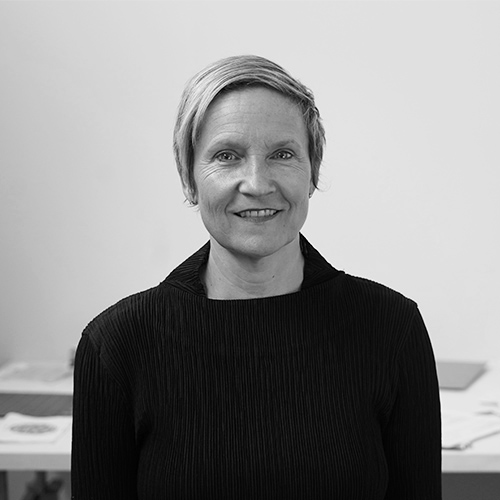
Lori Brown has developed a creative research practice focusing on the relationships between architecture and social justice issues with particular emphasis on gender and its impact upon spatial relationships in hopes to broaden the discourse and involvement of architecture in our world. She is the co-founder and leads ArchiteXX, www.architexx.org, a women and architecture group working to bridge the academy and practice in New York City and seeks to raise the awareness of women in architecture, create support and mentoring networks, and take design actions broadening the exposure of architecture in the world. ArchiteXX's current curatorial project is the traveling exhibition Now What?! Advocacy, Activism & Alliances in American Architecture since 1968 and has been supported by the Graham Foundation, New York State Council for the Arts, and the National Endowments for the Arts. Through ArchiteXX she is also currently collaborating with the Australian group Parlour on #wikiD, to write more women architects into Wikipedia which has been supported by the Wikimedia Foundation. Her two books include Feminist Practices: Interdisciplinary Approaches to Women in Architecture, an edited collection of a group of international women designers and architects employing feminist methodologies in their creative practices (2011) that began as a traveling exhibition, and Contested Spaces: Abortion Clinics, Women's Shelters and Hospitals exploring highly securitized spaces and the impact of legislation and the First Amendment's effect upon such places (2013). She is working with two abortion clinics on designing interventions for their public interface. Currently, her two book projects include Birthing, Borders and Bodies and coediting the Bloomsbury Global Encyclopedia of Women in Architecture 1960–2015 with Dr. Karen Burns. She is a Fellow of the American Institute of Architects and a 2021 Architectural League of New York Emerging Voices recipient. She is a Professor and Director of Diversity, Equity, and Inclusion at the School of Architecture Syracuse University, and a registered architect in New York state.
Nina Cooke John
Nina is the founding principal of Studio Cooke John Architecture and Design, a multidisciplinary design studio that values placemaking as a way to transform relationships between people and the built environment. Working at the scale of the human body; individually or collectively, in the home or on the street, responding to how we use space in our everyday lives; within the family, unit, and as a community. Studio Cooke John was recently selected to design the new Harriet Tubman Monument in Newark, NJ to be unveiled in the summer of 2022. The studio was awarded a 2021 AIA Merit Award for the public art installation, Point of Action, commissioned for the Flatiron public plazas in 2020 and currently on view at the Wassaic Project. Nina was named a 2022 United States Artists Fellow. Her work has also been featured in ArchitecturalRecord, Madame Architect, The New York Times, Dwell, NBC's Open House, the Center for Architecture's 2018 exhibition, Close to the Edge: The Birth of Hip-Hop Architecture, and PBS NewsHour Weekend. Nina began her professional career working on the designs of cultural institutions with Voorsanger and Associates and Polshek Partnership (now Ennead) before moving on to retail design, corporate offices, and custom residential construction. She is licensed to practice architecture in New York, New Jersey, and Connecticut. Born and raised in Kingston, Jamaica, Nina earned her Bachelor of Architecture degree from Cornell University and M.S.AAD from Columbia University. She has been a design educator for 20 years teaching at NYIT, Syracuse University, Parsons School of Design, and currently at the Columbia Graduate School of Architecture, Planning, and Preservation.
Milton S.F. Curry
Milton S. F. Curry holds the Della and Harry MacDonald Dean's Chair at the University of Southern California School of Architecture. He was associate dean for academic affairs and strategic initiatives at the University of Michigan Taubman College of Architecture & Planning from 2010 to 2017, a tenured Associate Professor of Architecture, and an affiliate faculty in the Department of Romance Literatures and Languages. Dean Curry was also project director of the Michigan/Mellon Project on Egalitarianism and the founder/director of the Michigan Architecture Prep enrichment program for high school students in Detroit. Dean Curry has held teaching positions at Harvard University Graduate School of Design and Arizona State University. He was Associate Professor of Architecture at Cornell from 2002–2010, and Assistant Professor from 1995–2002. Dean Curry has coordinated graduate and undergraduate design studios at all levels and has taught theory-related seminars on architecture and cultural theory, urbanism, and housing throughout his 24-year academic career. With a consistent interrogation of urbanism, modernity, and racialized thinking, Dean Curry has amassed a body of work that sets out to imagine an 'architecture race theory.' His writings and lectures, edited volumes, and creative works address race as part of the project of modernity and thus interconnected to its philosophical and aesthetic underpinnings and imaginings — including modern architecture/urbanism, social constructions of identity, and notions of the enlightenment and egalitarianism. In 2008 he founded CriticalProductive Journal, to focus on issues of architecture, urbanism, and cultural theory; and published two issues in 2011 (V1.1: Theoretic Action) and 2013 (V2.1: Post-Capitalist City); with new issues, forthcoming starting in 2018. Dean Curry lectures widely are at work on two book manuscripts that explore architecture race theory and contemporary urbanism and is at work on other creative projects.
Sachem Sam George
Sachem Sam George is one of 10 Sachems (chiefs) for the Cayuga Nation, representing the Bear Clan. He was condoled in April 2005. Having grown up on Seneca Nation territory (Cattaraugus) and having learned Seneca language and customs, Sachem George sought out to learn his Cayuga heritage. The Haudenosaunee people are a matriarchal society, his mother Cayuga, knew it was important to learn what it meant to be Cayuga. When he moved back to his homeland in 2014, as one of the first important tasks, he oversaw the building of the Cayuga School House, modeled after a contemporary longhouse. Sachem George has participated, along with the other returning Cayugas, in learning his language and ceremonies. He is taking that knowledge and wisdom to ensure a good future for his people. Sachem George sits on the Haudenosaunee Environmental Task Force addressing environmental degradation in Haudenosaunee communities by developing culturally-appropriate environmental education, restoration, and protection strategies. He is a member of the Haudenosaunee External Relations Committee which works on political and governmental structures beyond the borders of Haudenosaunee Nations. Sachem George is on the Elders Council for Native Community Services for Buffalo and Niagara Falls. In 2019 he was awarded the Bundled Arrow Award for his service to Native American communities. Sachem George has felt it important to be good neighbors and promotes the Great Law which is created and maintained by the Good Mind — a mind that is both "used well" and 'used for good' since one will inevitably lead to the other. Sachem Sam George lives with his wife in Union Springs, Cayuga Territory. He has 2 sons, a daughter, and 3 grandchildren that live in the greater Buffalo area.
Arthur Huang
Arthur is a structural engineer, architect, and leader in circular economy innovation with MINIWIZ, a trash material technology company he started in 2005. The mission of MINIWIZ is to UPCYCLE decades of single-use environmental "pollution" into a sustainable smart building "solution" of the future. Arthur's MINIWIZ team leapfrogs existing technology/empowers a circular economy for all communities. MW technology platform captures the value of single-use plastic, metal, glass through decentralized waste transformation machines to convert industrial and household wastes into sustainable building materials, building modules, specialty fabrics, designer furniture/fixtures. After 2 decades of innovation focusing on impactful upcycling technologies powered by a multi-national/multidisciplinary team, MINIWIZ is now offering its modular infrastructure as an ESG specialty contractor to the global market to make circular concepts into physical reality. MW's upcycled experimental products have already been implemented in over 300,000 sqm of commercial retail, hotels, and offices across major international cities. Under Arthur's leadership, MINIWIZ has received numerous international invention patents in manufacturing processes / mechanical assemblies to enable circular consumption. Arthur was recognized by various international institutions including the World Economic Forum's Technology Pioneer Award, Obama's Emerging Leader, the Financial Times' Earth Award, and The Wall Street Journal's Asian Innovation Award. Arthur has been a National Geographic Emerging Explorer since 2016 and the World Economic Forum recognized him as the Runner Up for The Circular Leadership Award 2019 Davos. In February 2019, the World Economic Forum named MINIWIZ as one of the top 11 companies leading the way to a circular economy.
Timothy Ingold
Tim Ingold, FBA, FRSE, is Professor Emeritus of Social Anthropology at the University of Aberdeen. He has carried out fieldwork among Saami and Finnish people in Lapland and has written on environment, technology, and social organization in the circumpolar North, on animals in human society, and on human ecology and evolutionary theory. His more recent work explores environmental perception and skilled practice. Ingold's current interests lie in the interface between anthropology, archaeology, art, and architecture. His recent books include The Perception of the Environment (2000), Lines (2007), Being Alive (2011), Making (2013), The Life of Lines (2015), Anthropology and/as Education (2018), Anthropology: Why it Matters (2018), Correspondences (2020), and Imagining For Real (2022). Through a reconsideration of toolmaking and speech as criteria of human distinctiveness, Ingold became interested in the connection in human evolution, between language and technology. With Kathleen Gibson, he organized an international conference on this theme in 1990, and the resulting volume, edited by Gibson and Ingold (Tools, language and cognition in human evolution), was published in 1993. Since then, Ingold has sought ways of bringing together the anthropologies of technology and art, leading to his current view of the centrality of skilled practice.
Sébastien Marot
A teacher and historian specializing in architectural theory, Sébastien Marot is one of the leading voices in the conceptualization of landscaping and the design of rural environments. Educated in philosophy, he holds a Ph.D. in History from the École des Hautes Études en Sciences Sociales. Throughout his extensive career as a researcher, his interest has been focused on contemporary architectural theory, urban design, and landscaping, an interest that has recently centered on rural areas. In 2019 he curated the exhibition «Taking the Country's Side: Agriculture and Architecture» for the Lisbon Architecture Triennial. He is currently a professor at the École d'Architecture in Paris-Est and teaches classes as a visiting professor at the École Polytechnique Fédérale in Lausanne and the Harvard Graduate School of Design, where he participates in a program on the conceptualization and design of rural spaces. He was editor-in-chief of Le Visiteur magazine and since 2010 he has been the editor of Marines: documents d'architecture. He is also the author of a large number of publications dedicated to critical thinking on urbanism and cities, such as Sub-Urbanism and the Art of Memory (AA Publications 2003), which has been translated into several languages, and the reissue of the famous manifesto by Oswald Mathias Ungers and Rem Koolhaas The City in the City: Berlin, A Green Archipelago (Lars Müller 2013).
Meredith Palmer
Meredith Alberta Palmer (Tuscarora, Six Nations) is a Presidential Postdoc at Cornell University, in the Department of Science & Technology Studies and the American Indian and Indigenous Studies Program. Meredith's postdoctoral work explores notions of consent and refusal in the biomedical context from an Indigenous feminist and Haudenosaunee perspectives and will construct a critical understanding of the historic conditions of possibility that have given rise to Indigenous data sovereignty initiatives. Her current book project, Imperial Evidence, shows how Indigeneity disrupts core notions of reason, order, and humanism which articulate science, technology, and the U.S. colonial state. As a geographer focusing on technologies of occupation, she works to amplify and build ways in which these structures of dominance are refused in lands currently territorialized as North America. She received her Ph.D. in Geography from UC Berkeley in 2020, and M.P.H. from UC Berkeley's School of Public Health in 2015. Meredith received her B.S. from Cornell University, in Development Sociology.
Sarah Whiting
Sarah M. Whiting, Dean and Josep Lluís Sert Professor of Architecture, joined the GSD as Dean in July 2019. She is a design principal and cofounder of WW Architecture and served as the Dean of Rice University's School of Architecture from 2010 to 2019. Whiting has taught at Princeton University, the University of Kentucky, the Illinois Institute of Technology, and the University of Florida, in addition to Rice and Harvard GSD. She frequently lectures throughout the U.S. and abroad, and regularly serves as a critic of architecture and urban design. Prior to founding WW, Whiting worked with the Office for Metropolitan Architecture in Rotterdam, The Netherlands; Peter Eisenman in New York; and Michael Graves in Princeton, New Jersey. She is an Associate Member of the American Institute of Architects. Whiting's research is broadly interdisciplinary, with the built environment at its core. An expert in architectural theory and urbanism, she has particular interests in architecture's relationship with politics, economics, and society and how the built environment shapes the nature of public life. Her work has been published in leading journals and collections, and she is the founding editor of Point, a book series aimed at shaping contemporary discussions in architecture and urbanism. Whiting's writings have been published in journals ranging from ANY to Wired, as well as in collections including Shaping the City, Mies in America, Six Authors in Search of an Architect, and An Architecture for all Senses: the Work of Eileen Gray. She edited Differences, a collection of essays by Ignasi de Solà-Morales, and also served as reviews editor for the journal Assemblage from 1996 to 2001. She currently serves on the editorial boards of the journals LOG, The Plan, and Thresholds. Dean Whiting received her Bachelor of Arts from Yale, her Master of Architecture from Princeton University, and her Doctor of Philosophy in the History and Theory of Architecture from MIT.
J. Meejin Yoon
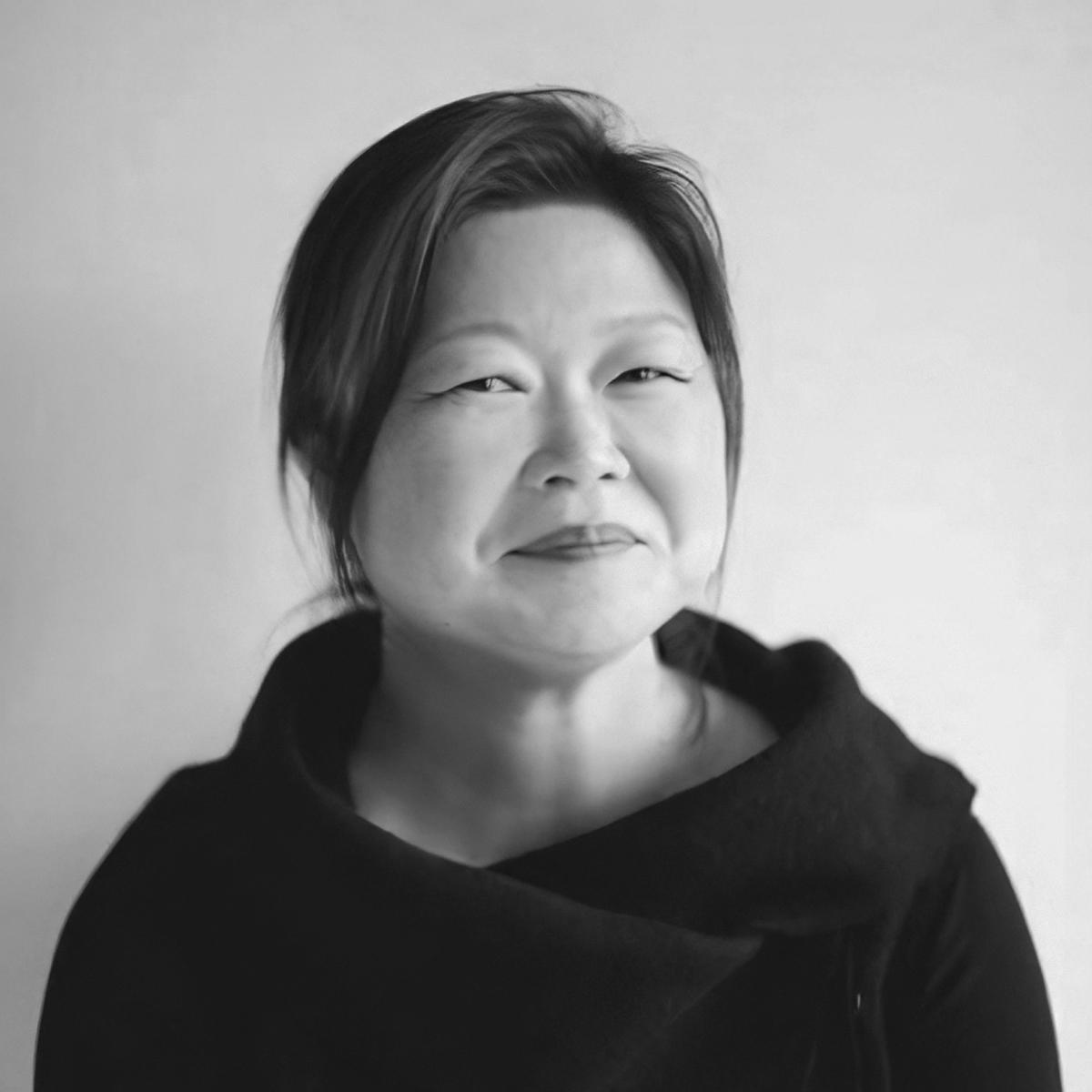
J. Meejin Yoon, AIA FAAR, is the Gale and Ira Drukier Dean at the College of Architecture, Art, and Planning (AAP) at Cornell University and cofounder of Höweler + Yoon, an award-winning design studio engaged in projects across the U.S. and around the world. An architect, designer, and educator, Yoon is committed to advancing pedagogy, research, and practice to expand new knowledge and imaginaries across fields and disciplines, and to bringing deep expertise to the urgent environmental and social challenges facing our cities and communities. At AAP, she is founding director of the Design Across Scales Lab, a creative think tank and platform for multi-scalar design research. Yoon's own research examines intersections between architecture, urbanism, technology, and the public realm, and her professional projects and creative work include cultural buildings, public spaces, and memorials. Recently built projects include the Memorial to Enslaved Laborers at the University of Virginia, Sky Courts Exhibition Hall in Chengdu, China, and the Collier Memorial and MIT Museum at the Massachusetts Institute of Technology. Yoon's work has been exhibited in the U.S. and internationally at venues such as at the Museum of Modern Art in New York City, the Los Angeles Museum of Contemporary Art, the Smithsonian Cooper-Hewitt National Design Museum in New York City, the Vitra Design Museum in Weil am Rhein, and the Venice Biennale, among others. Yoon received a Bachelor of Architecture from Cornell University, and a Master of Architecture in Urban Design from the Harvard University Graduate School of Design. Before returning to Cornell in 2019, Yoon served as head of the Department of Architecture at MIT from 2014–2018, and as a faculty member for 17 years prior. In 2016, Yoon received the ACADIA Teaching Award of Excellence, and the Irwin Sizer Award for Most Significant Improvement to MIT Education in 2013. In 2021, she was elected to the American Academy of Arts and Letters.
Respondents
Sean Anderson
Sean Anderson was the Associate Curator in the Department of Architecture and Design at The Museum of Modern Art (MoMA) before returning to Cornell as an Associate Professor in Architecture and Director of the B.Arch. Program. A Fellow of the American Academy in Rome with a P.h.D. in African Art History, he has practiced as an architect and taught in Afghanistan, Australia, India, Italy, Morocco, Sri Lanka, and the United Arab Emirates. He has authored books on South Asian ritual sculpture, the modern architecture of colonial Eritrea, and coedited a volume dedicated to contemporary architecture and design in Sri Lanka. In 2020, he co-curated the exhibition On Muzharul Islam: Surfacing Intention at the Dhaka Art Summit in Dhaka, Bangladesh. At MoMA, he organized the exhibitions Insecurities: Tracing Displacement and Shelter (2016–17); Thinking Machines: Art and Design in the Computer Age, 1959-89 (2017–18); and four iterations of the Young Architects Program at MoMA PS1. He has also been responsible for or collaborated on permanent collection galleries including the ongoing Building Citizens and 2019's Surrounds. He co-organized with Mabel O. Wilson, Reconstructions: Architecture and Blackness in America, the first exhibition ever at MoMA to highlight the work of African American and African Diasporic architects (February 27–May 31, 2021).
Lily Chi
Lily Chi's teaching covers topics in contemporary design research, 18th to 21st-century theory and criticism, and architectural drawing/representation in western history. Her studios have investigated urban temporalities, 1:1 and the situational, film and formation, and questions of location/globalization in the contemporary city. Chi served as design editor for the Journal of Architectural Education from 2000–04. She is completing a writing project on city-building, war, and propaganda in 20th-century Saigon. Chi received her B.Arch. with high distinction from Carleton University (Canada), her M.Phil. in architectural history and theory from Cambridge University, and her Ph.D. from McGill University. Her doctoral work examined the role of Enlightenment concepts of custom, nature, and history in the formation of modern architectural discourse. These themes are developed in her current research on the "sites" of architectural work in a geographically expansive discipline.
Tao DuFour
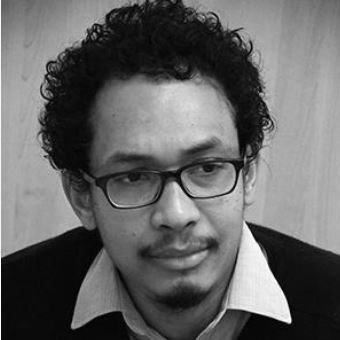
Tao DuFour's work investigates questions of embodied spatial experience, intersubjective and intergenerational understandings of architecture, landscape, and territory, and the ways in which these both constitute and are embedded in the historicity of environments. His interests are in the phenomenology of perception and corporeity, phenomenological accounts of the experience of spatiality and the "natural" world, and their relationship to ethnographic descriptions of space. He is particularly interested in exploring accounts of spatiality in the Husserlian tradition and the significance of these accounts for interpreting the experience of landscape. He has recently written on this theme as a chapter contribution to the Routledge Research Companion to Landscape Architecture. DuFour directs the Landscape and Urban Environmentalities Lab, an interdisciplinary collaborative that studies spatial and territorial relationships between cities and their hinterlands, including climate and atmospheres, industrial and agricultural landscapes, infrastructures, greenbelts, and forests. The Lab foregrounds problems of intersubjective and intergenerational environmental experience and imaginaries, employing geospatial mapping and drawing on literary and ethnographic sources and methods, including fieldwork and the use of visual media such as photography and documentary film. DuFour's current research focuses on the regional context of the Caribbean and Guianas. He holds a B. Arch. from The Cooper Union and an MPhil and Ph.D. in the history and philosophy of architecture from the University of Cambridge. He is the author of Husserl and Spatiality: A Phenomenological Ethnography of Space.
María González Pendás
María González Pendás is an architectural historian of modernity and coloniality of the Spanish transatlantic world whose research explores the intersections of aesthetics, technologies, ideologies, and power through the built environment. Her current book manuscript, Holy Modern: Technocracy, Theocracy, and the Architectures of Hispanic Fascism, studies the architectural workings of fascism, technocracy, and the imperial figment of Hispanidad in the second postwar and through the lens of Spain. Other projects have investigated relations of labor and race in México; the coloniality of concrete technologies and innovation across the South Atlantic; and the relationship between technology, religion, and secularism in global modernity. González Pendás has received grants and fellowships from the Society of Architectural Historians, the Graham Foundation, and the Fulbright Foundation, among others, and was a member of Columbia University's Society of Fellows in the Humanities from 2016–19. She received her Ph.D. in Architecture History and Theory from Columbia University and her Masters in Architecture from the Polytechnic University in Madrid. Prior to joining Cornell, she taught at Vassar College, The Cooper Union, and the Art History Department at Columbia University, where she also coordinated the public humanities initiative of the SOF/Heyman Center for the Humanities to promote civically engaged forms of scholarship and pedagogy.
Jolene Rickard
Jolene Rickard, a citizen of the Tuscarora nation, Turtle clan, is an artist, curator, and visual historian at Cornell University, specializing in indigenous people's issues. Rickard cocurated two of the four permanent exhibitions for the Smithsonian National Museum of the American Indian. Rickard, the granddaughter of Tuscarora chief Clinton Rickard, was born in 1956 at Niagara Falls, New York. In 1977 Jolene Rickard attended the London College of Printmaking. She received her B.F.A. from the Rochester Institute of Technology and in 1991 she graduated with an M.A. from Buffalo State College. Rickard earned her Ph.D. in American Studies with a Native component from the University at Buffalo (SUNY) in 1996. After her education and having worked as a television art director and graphic designer, she moved back to Tuscarora Reservation in upstate New York. Well known pieces by the artist include 3 Sisters, a 1989 black-and-white photograph and color xerox (the artist's sleeping face interposed with squash, beans, and corn, the Three Sisters staple crops); and I See Red in the '90s, a 1992 six-panel photograph series in protest of the quincentenary of Columbus' landing in America, also including a self-portrait. Her ...the sky is darkening (2018), which incorporates beadwork by older traditional and contemporary artists, considers "deep reclamation of land by the Cayuga..." She sees her photography as ultimately linked to "the manipulations of light and texture and the representations of cosmological space and spirituality of earlier generations of Iroquois beadwork artists".
Jenny Sabin
Jenny E. Sabin is an architectural designer whose work is at the forefront of a new direction for 21st-century architectural practice — one that investigates the intersections of architecture and science and applies insights and theories from biology and mathematics to the design of material structures. Sabin is the Arthur L. and Isabel B. Wiesenberger Professor in Architecture and director of graduate studies in the Department of Architecture at Cornell University where she established a new advanced research degree in matter design computation. Sabin is the principal of Jenny Sabin Studio, an experimental architectural design studio based in Ithaca, and director of the Sabin Lab at Cornell AAP. She holds degrees in ceramics and interdisciplinary visual art from the University of Washington and a master of architecture from the University of Pennsylvania. Her book LabStudio: Design Research Between Architecture and Biology, co-authored with Peter Lloyd Jones, was published in 2017. Sabin won MoMA and MoMA PS1's Young Architects Program in 2017 with her submission, Lumen.
Marta H. Wisniewska
Marta H. Wisniewska is an architect and urban planner deriving her designs from an extended understanding of the genius loci with a special focus on local material availability, craftsmanship, and industrial processing skills. Influenced by her experiences researching and teaching in contrasting contexts such as Ethiopia, Singapore, Switzerland, and Germany, she aims to activate new and alternative resources for unique and context-specific applications, aspiring to widen the architectural palette. Wisniewska's work has been published in several book publications such as Building from Waste (Birkhäuser, 2014); Addis Ababa: a Manifesto on African Progress (Ruby Press, 2018); and City in Your Hands, ETH Zurich (2019). She holds an M.Sc. in architecture and urban planning from ZUT Szczecin, Poland.
Organizers
Caroline O'Donnell
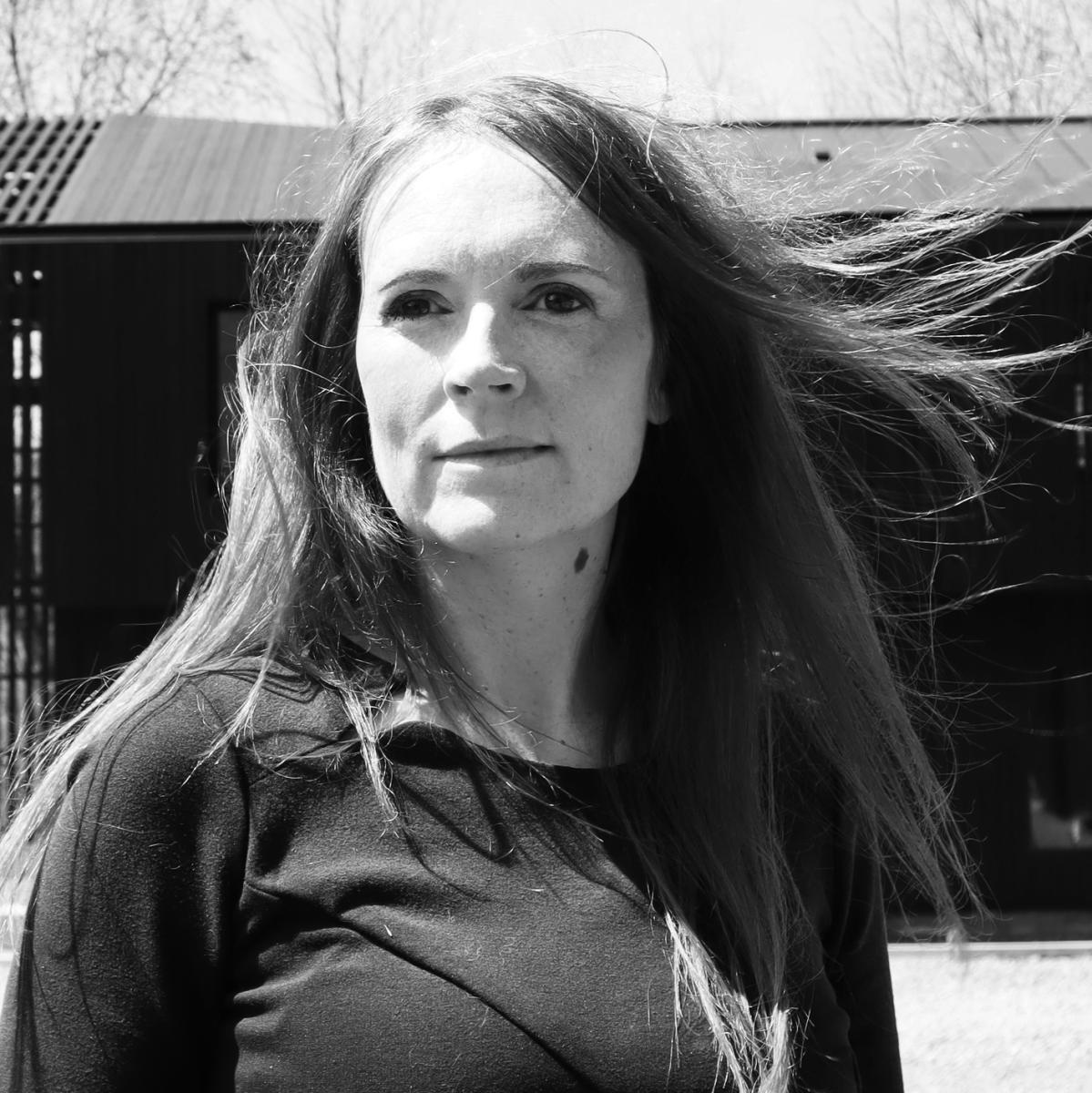
Caroline O'Donnell is the Edgar A. Tafel Professor of Architecture, and Chair of the Department of Architecture at Cornell University. Her research and teaching areas are in ecological and contextual design, as well as in nonlinear materiality. She is a licensed architect and sole principal of CODA, and winner of MoMA/PS1's Young Architects Program in 2013 with the project Party Wall, which used skateboard offcuts and leftover steel. See co-da.co Opens an external link for more information. O'Donnell was the editor of the Cornell Journal of Architecture issues 8–10 and founding editor of Pidgin magazine. Her first book, Niche Tactics: Generative Relationships between Architecture and Site, was published by Routledge in April 2015. O'Donnell has previously taught at Harvard GSD and at the Irwin S. Chanin School of Architecture at The Cooper Union. From Northern Ireland, she received her B.Arch. (specialization in bioclimatics) from the Manchester School of Architecture, England; and her M.Arch.II from Princeton University.
Wendolin Gonzalez
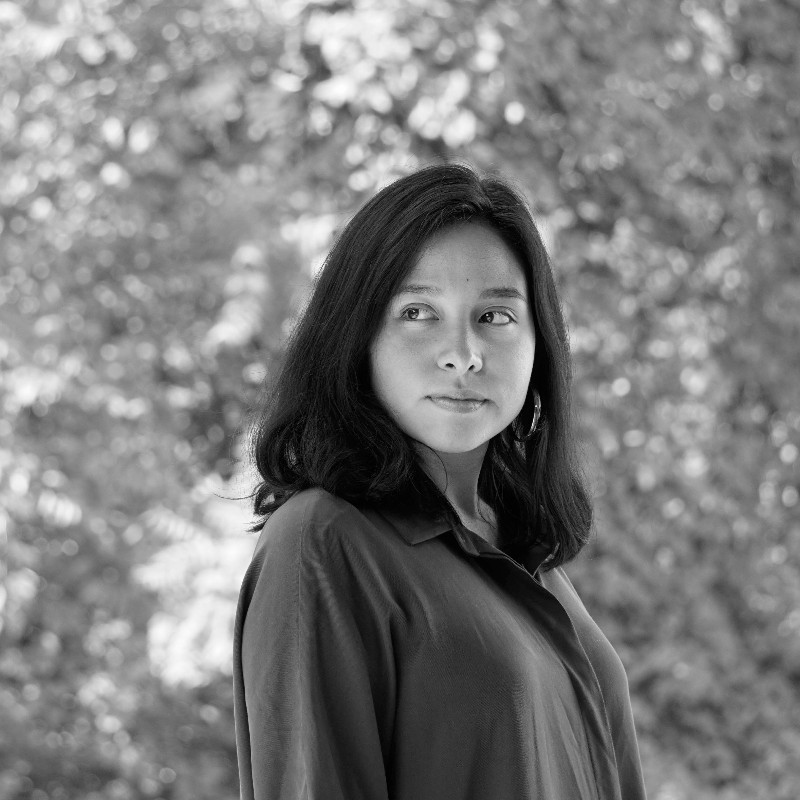
Wendolin Gonzalez is a recent graduate of Cornell University, where she received a Bachelor of Architecture and a minor in Psychology and was awarded the Alpha Rho Chi medal. Her latest research interests focus on community-based design, storytelling, and visual representation. Her thesis project, titled "Eden – In Search of Paradise," explored the relationship between architecture and nature to question the role of design as it impacts the environment. During her time at Cornell, Wendi worked for the Office of the University Architect and as a research assistant. She had the pleasure of serving multiple terms as the student representative of the undergraduate architecture class of 2021 and served on the executive board for Thumbnail, NOMAS, and Building Community. She has worked at several architectural offices across the U.S., including Ballman Khapalova Architects, Arrowstreet, and Tesla. Wendi's architectural education began with the Cornell summer program, which she completed in 2016. She is thrilled to be returning to the program as a Teaching Associate.
Special thanks to architecture faculty Sean Anderson and Lily Chi for their support in shaping this semester's symposium.






